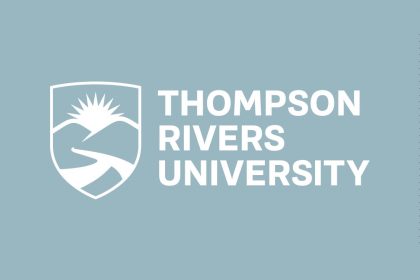Taking the Guesswork Out of Finding the Right Open Textbook for Your Course
By Lauri Aesoph, manager, Open Education Operations, BCcampus
B.C.’s post-secondary sector has come a long way in the past 10 years when it comes to open textbooks. From learning the ins-and-outs of open licences to using these resources in almost 6000 course sections, this province’s faculty members have embraced open textbooks to the tune of over $30 million in student savings.
Now instructors can more easily find open textbooks that best fit their curriculum with the Adoption Finder, a new tool that helps identify open textbooks used at colleges, institutes, and universities in B.C.
The number-one reason faculty cite for not adopting open textbooks is the time it takes to find the right book.
Open education experts around the province have tried to address this problem by working with departments to identify relevant open educational resources (OER) for courses, sharing existing adoptions with instructors not using open textbooks, directing faculty to open textbook collections in Canada and beyond, and encouraging faculty to adapt or create open textbooks when existing OER don’t meet their needs.
Hesitancy to adopt is another roadblock. While OER evaluation rubrics are available and helpful, some instructors are reluctant to use an open textbook without knowing who, how, or where it’s being used. Brenda Smith, open education librarian at Thompson Rivers University, reports faculty asking her if there is a comprehensive open-textbook adoption record that specifically lists the institution and course using each book.
Many schools in the B.C. post-secondary system do track adoption details for their campus. While some of these records are published, most remain closed. Nowhere is there a complete document that lists all adoptions for all courses and disciplines in B.C. Debra Flewelling, open education and emerging technologies librarian at Douglas College, says, “For a long time now I’ve wanted us to share what resources we use just as OpenOregon does. I would find it invaluable to know if someone at another institution is using an OER for their course.”
Fortunately, such a record does exist, but it had not been made public due to privacy concerns. Recently, discussions between BCcampus and the post-secondary community resumed about how or if this policy should change so valuable adoption information could be shared while still protecting faculty confidentiality.
Open and Respectful
Protecting the privacy of adopting instructors has been a barrier to sharing this kind of information in the past, especially when faculty explicitly state they did not want their information shared when reporting open textbook use via the BCcampus adoption form.
However, on further deliberation, it was determined that sharing of adoptions would not impact privacy if no personal information was included. If the data were anonymized and included only the open textbook used, the course code and name, and the adopting institution, the info could be shared.
A few years ago some institutions, such as Douglas, Kwantlen Polytechnic University, Langara, and the University of British Columbia, began sharing their adoption data. Although helpful, the differences in format and layout, and the types of content posted by each institution, were not ideal for those looking for adoption ideas.
This early attempt was followed by BC Open Education Librarians dedicating a section of its OER Commons site for members to voluntarily post spreadsheets with yet more detailed adoption data — faculty names redacted.
Build It … and They Will Adopt
The work of designing and building the Adoption Finder began June 2021 and stretched out for six months. Once finished, the finder included more than 500 discrete adoptions.
The idea behind the Adoption Finder, however, was to not only provide actual adoptions used for specificcourses but also list potential adoptions for comparable courses. Therefore, most of the hours used to create this finder were spent adding codes for courses to which the adopting course transferred (transferable courses). This was done using the BC Transfer Guide.
Feedback on early drafts has resulted in a finder that is easy to search by subject area; course level, course name, and code that might benefit from an OER; and open textbook adopted, including its link and collection location. Three additional tabs explain how to use the finder with suggested searching options and definitions, a list of the institution codes used in the finder, and a permissions page that specifies copyright, open licence type, and authorship. The Adoption Finder is regularly updated with new adoptions, part of the provincial adoption stats posting process.
We look forward to receiving your feedback about this new resource.
Notable Quote
“The Adoption Finder is a unique and valuable tool for the open education community in B.C. and beyond. Until now post-secondary institutions in B.C. have operated in a semi-siloed structure, with instructors, librarians, and other OER advocates trying to bridge the gaps between one another to have a better understanding of what OER are available and what is being used by other institutions. For years we’ve done our best to communicate with each other and to help promote OER not just within our own institutions but between institutions. The Adoption Finder creates the bridge needed to easily see what open textbooks other institutions are using, to demonstrate to faculty what resources other instructors in their discipline are using, and to explore new open textbooks for your courses. The Adoption Finder fills a much-needed gap and will create a more holistic community of OER in B.C.”
— Darcy Lovsin, Librarian, JIBC
Learn more:
The featured image for this post (viewable in the BCcampus News section at the bottom of our homepage) is by lilartsy from Pexels
